The Ultimate Guide to Choosing the Best Smoke Flavor for Pork Ribs (Plus a BBQ Smackdown!) 🍖🔥
Table of Contents
- Introduction: Why Smoke Flavor Matters for Pork Ribs
- Types of Smoke Flavors for Pork Ribs
- Top 5 Smoke Woods for Pork Ribs (and How They Stack Up)
- Buying Guide: What to Look For When Picking Smoke Flavors
- Pairing Smoke with Rubs & Sauces: The Dream Combos
- Smoking Techniques That Bring Out the Best in Your Flavor Choice
- Conclusion: Find Your Perfect Smoke Match
Introduction: Why Smoke Flavor Matters for Pork Ribs
If you're serious about making mouthwatering pork ribs, then choosing the right smoke flavor is just as important as selecting your rub or sauce. After all, smoking is not just about cooking — it’s about crafting flavor.
Imagine this: you’ve spent hours prepping your rack of ribs, applying your favorite spice blend with care, and now it's time to let them rest in the smoker. But what kind of wood are you using? Hickory? Apple? Cherry? Each choice will drastically change the final flavor profile.
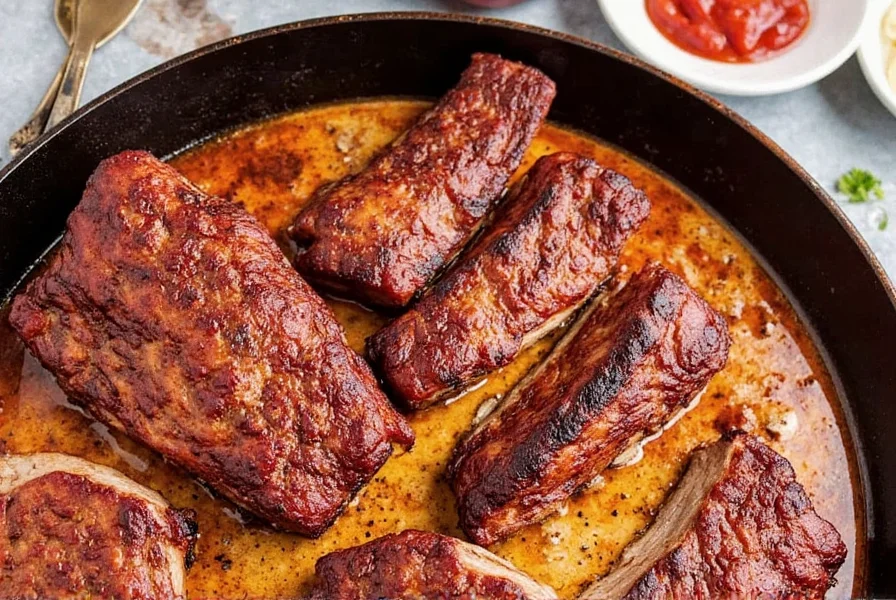
In this article, we’ll explore the best smoke flavors for pork ribs, how they affect taste, and which woods pair best with different styles of barbecue. Let’s fire up the conversation!
Types of Smoke Flavors for Pork Ribs
Not all woods are created equal when it comes to smoking meats. Each type imparts its own unique aroma and flavor. Here’s a breakdown of the most popular choices:
- Hickory: Strong, bacon-like flavor — ideal for traditional Southern-style ribs.
- Mesquite: Very bold, almost earthy — best used sparingly or mixed with milder woods.
- Oak: Balanced, smoky flavor — great for longer cooks and classic barbecue.
- Apple: Mild and sweet — works well with sweeter sauces and marinades.
- Cherry: Slightly fruity and smooth — pairs beautifully with dry rubs.
- Pecan: Nutty and slightly sweet — perfect for those who want depth without overpowering intensity.
Each wood has its own personality, so choosing one depends on the flavor you’re after and how adventurous you feel.
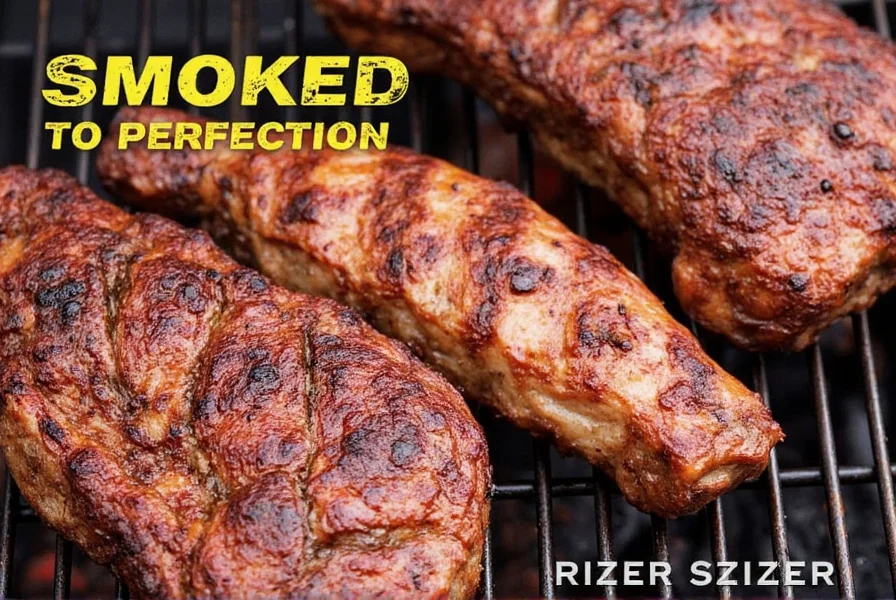
Top 5 Smoke Woods for Pork Ribs (and How They Stack Up)
To help you decide which wood to use next time you fire up the smoker, here’s a head-to-head comparison of the top five smoke woods for pork ribs:
| Wood Type | Flavor Profile | Intensity | Best For | Pro Tip |
|---|---|---|---|---|
| Hickory | Bold, bacon-like | Strong | Classic American BBQ | Great for long cooks and bold rubs |
| Apple | Sweet, mild | Mild | Beginners, lighter flavors | Mix with hickory for complexity |
| Cherry | Fruity, smooth | Moderate | Dry rub lovers | Adds a beautiful red glaze |
| Oak | Earthy, balanced | Moderate | Traditionalists | Excellent base wood for blends |
| Pecan | Nutty, slightly sweet | Moderate | Richer flavor profiles | Ideal for fall and winter |
Now that we’ve laid out the contenders, let’s see which one deserves a spot in your smoker.
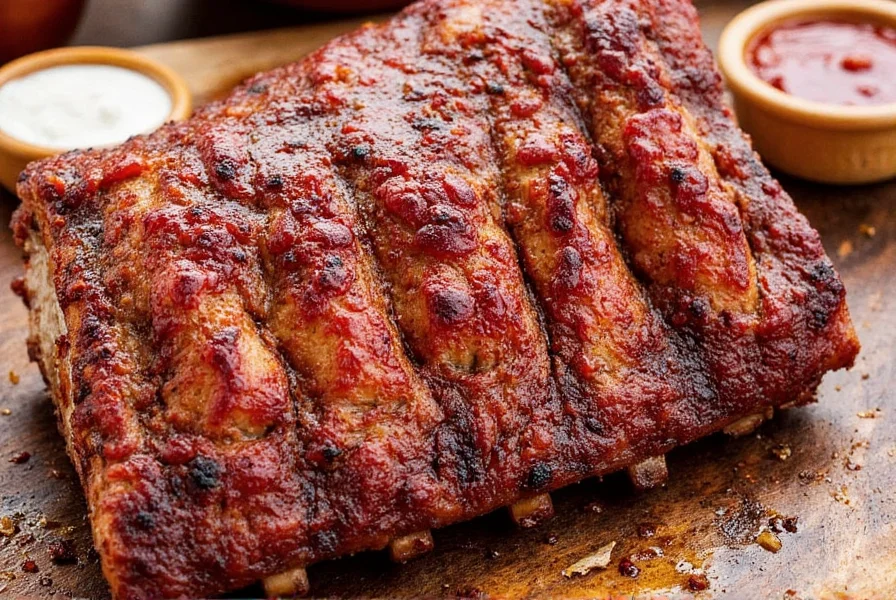
Buying Guide: What to Look For When Picking Smoke Flavors
When shopping for wood chips or chunks, not all products are made equally. Here’s what to keep an eye out for:
1. Wood Quality
- Avoid softwoods like pine — they contain resins that can ruin your meat.
- Opt for hardwoods from reputable brands — look for terms like “kiln-dried” or “all-natural.”
2. Size Matters
- Chips: Burn faster, best for short cooks or electric smokers.
- Chunks: Last longer, better for charcoal or offset smokers.
- Logs: Used for large pits or professional setups.
3. Packaging
- Airtight packaging helps preserve freshness and flavor.
- Avoid bags that feel damp or smell musty.
4. Blends vs. Single Species
Many stores sell pre-mixed wood blends. These can be a good way to experiment with different flavors. Try combinations like:
- Hickory + Apple = Sweet yet smoky
- Cherry + Pecan = Fruity with nutty undertones
- Oak + Mesquite = Bold and complex
Recommended Brands
Here are some top picks for reliable smoke woods:
- Jacobson Meat Company – Applewood Chips: Great for beginners, consistent burn.
- Weber Premium Hardwood Chunks – Hickory: Long-lasting, clean-burning, and trusted by many.
- Jack Daniel’s Old No. 7 Whiskey Barrel Staves: Unique twist for whiskey lovers — adds a rich, caramel note.
- Lynx BBQ Smoking Chunks – Cherry: Excellent for achieving a subtle fruitiness.
- Stubb’s Legendary Bar-B-Q Smoking Chips – Mesquite: For those who like their ribs with attitude.
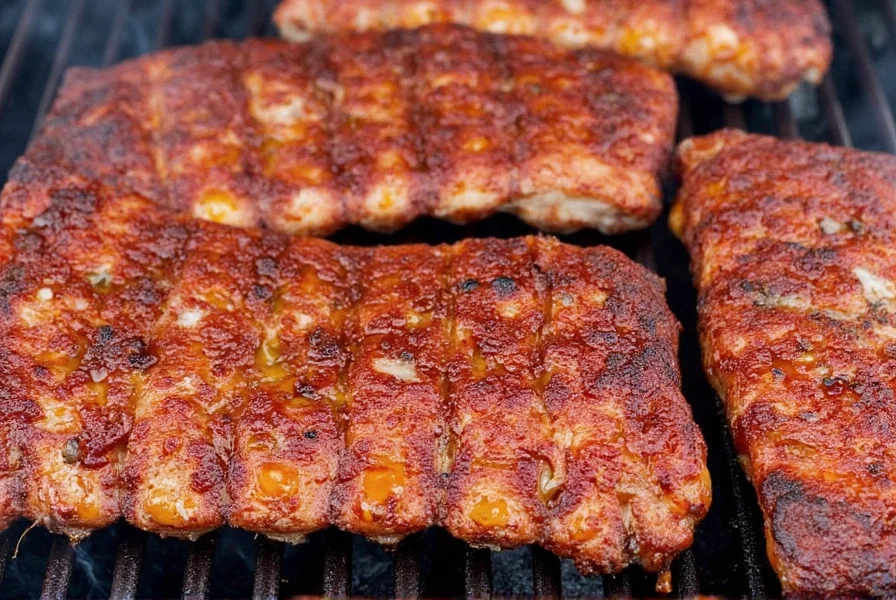
Pairing Smoke with Rubs & Sauces: The Dream Combos
Matching your smoke flavor with the right rub or sauce can elevate your ribs from good to unforgettable. Here are some tried-and-true combinations:
1. Hickory + Brown Sugar Rub
This classic combo mimics the taste of slow-smoked bacon — savory, sweet, and smoky all at once.
2. Apple + Citrus Herb Rub
Light and refreshing. Think grilled peaches and fresh herbs meeting perfectly on a rack of ribs.
3. Cherry + Bourbon Glaze
Deep, rich, and slightly fruity — perfect for fall cookouts or holiday dinners.
4. Oak + Classic Dry Rub
Let oak do the talking with a no-frills, salt-and-pepper rub that lets the meat shine.
5. Pecan + Maple BBQ Sauce
This sweet and nutty duo is ideal for dessert lovers who want their ribs to end on a high note.
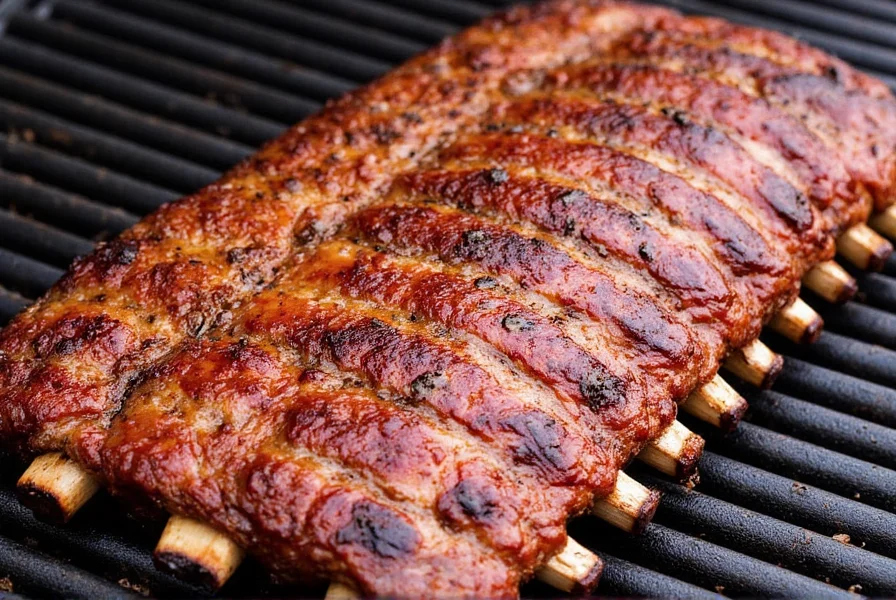
Smoking Techniques That Bring Out the Best in Your Flavor Choice
Choosing the right wood is only half the battle. Here are some pro-level techniques to ensure your ribs turn out perfect every time:
1. Pre-soak or Not?
There’s debate over whether to soak wood chips before using them. Here’s the deal:
- Soaking Pros: Creates more steam, produces longer-lasting smoke clouds.
- Soaking Cons: Delays ignition, may cool down the smoker too much.
Bottom line: Soak if you're using an electric smoker, but skip it for charcoal or gas setups.
2. Temperature Control
Keep your smoker between 225°F and 250°F. Too hot, and the smoke won’t infuse properly. Too cold, and the meat won’t break down correctly.
3. Layering Flavors
Start with a mild wood early in the cook (like apple), then switch to something stronger (like hickory) during the last few hours for a layered effect.
4. The Foil Wrap Trick
About halfway through cooking, wrap your ribs in foil with a bit of liquid (apple juice, beer, broth). This traps moisture and intensifies the smoke absorption.
5. Finishing Touches
Apply sauce in the last 30 minutes of cooking. Too early, and it might burn. Too late, and it won’t stick. And don’t forget a final hit of wood smoke post-sauce — it seals in the smoky kiss.
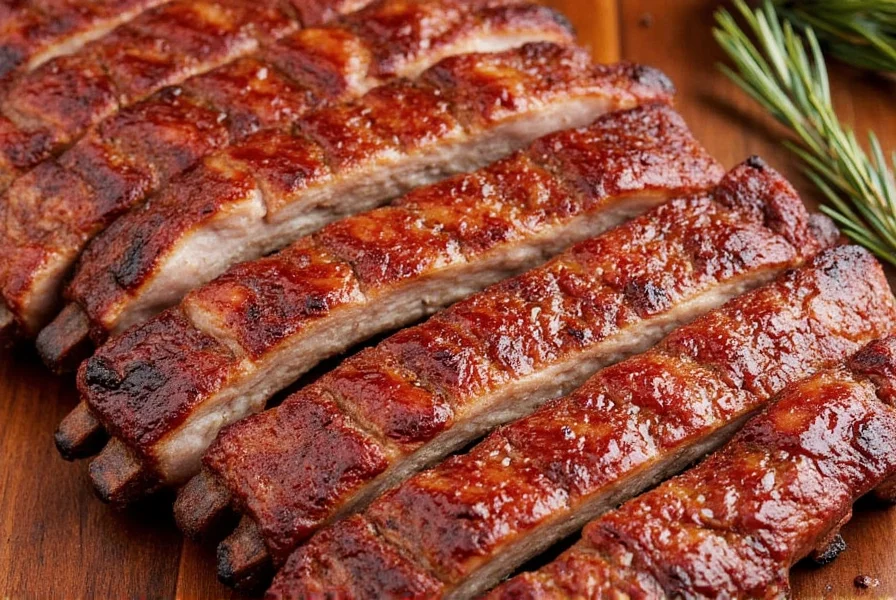
Conclusion: Find Your Perfect Smoke Match
The best smoke flavor for pork ribs isn't a one-size-fits-all answer — it depends on your taste preferences, cooking method, and even the season. Whether you lean toward the bold punch of hickory or the gentle sweetness of cherry, there’s a wood out there waiting to transform your ribs into a masterpiece.
Don’t be afraid to mix and match. Try blending two woods together. Experiment with rubs and sauces. Make each batch your own. And most importantly, have fun with it — because that’s what grilling and smoking are all about.
Got any favorite combos or tricks up your sleeve? Share them in the comments below — we’d love to hear how you make your ribs sing!
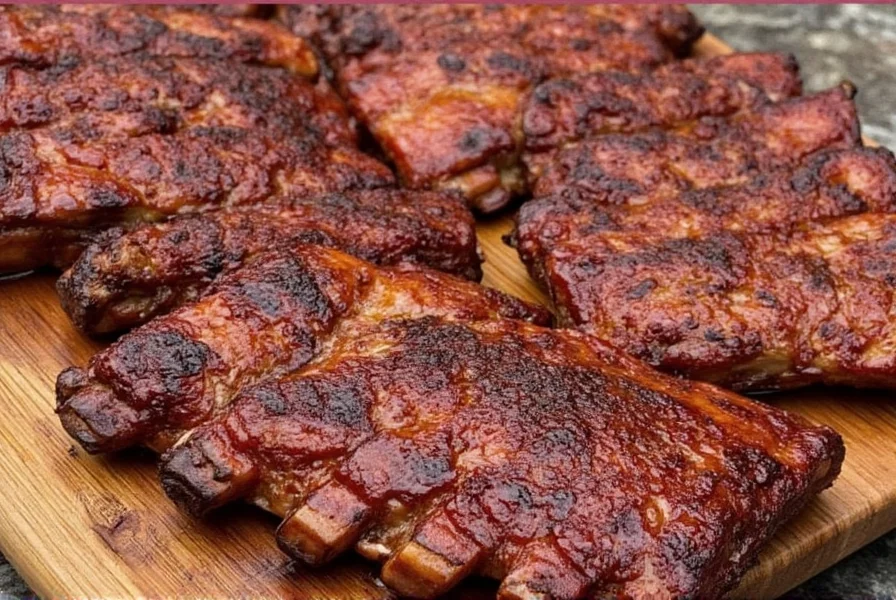

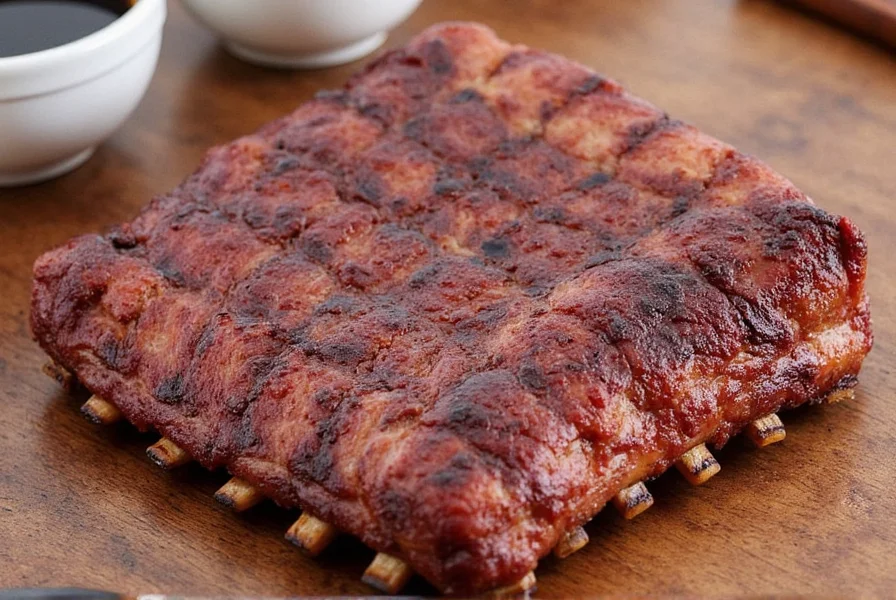









 浙公网安备
33010002000092号
浙公网安备
33010002000092号 浙B2-20120091-4
浙B2-20120091-4